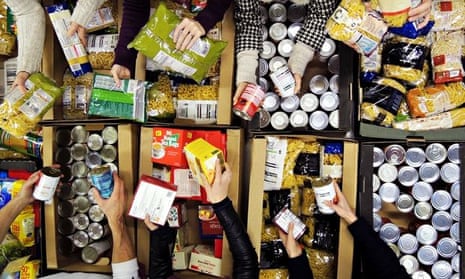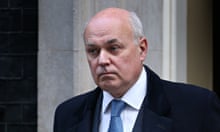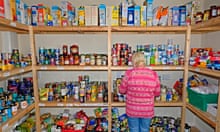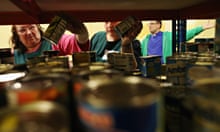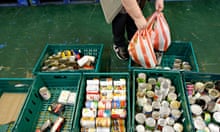One great success – perhaps we’ll look back on this as the great success – of the current government has been to reframe human rights as something that only criminals and destitute foreigners need.
They did not manage this unaided: the trend for the past 20 years has been to avoid saying “rights” if you possibly can, preferring “dignity” (for older people), “life chances” (for children) and ignoring everyone in between. “Rights” sounded strident, and reminded people of “entitlement”, the sense of which became that great (mythical) enemy of progress in the Blair years. Instead, social care and duty were re-imagined as something we do for the vulnerable, because we are nice. That worked until we stopped being nice. Now it turns out that some framework of universal entitlement, established by the principles of justice, solidarity and humanity, would actually be quite helpful.
The Children’s Rights Alliance England (CRAE) last week produced a shaming report on the rights that are routinely ignored, by social services, police and the criminal justice system. It has profound implications for what that does to the UK’s international standing.
Poignantly valuable work has been done by the charity Just For Kids Law, which won a judicial review last year into the detention of 17-year-olds (who were treated as adults by police). The charity argued that a 17-year-old needed an adult interlocutor as much as any other child would. The case was brought after two children killed themselves after being detained with no adult supervision or advocacy. While the review was going on, a third young person killed herself. The protection of children in the criminal justice system could not be more urgent, nor more consequential.
However, this still fits into the existing narrative of international treaty rights as a foxhole for people who are already, for reasons of criminality or some other distinction of “vulnerability”, (literally) beyond the pale.
In fact, you may be astonished to learn the extent of children’s rights to which we, as a nation, are signatory. Under article 26 of the UN convention on the rights of the child, children have a “right to benefit from social security”. According to article 27, they have “a right to a standard of living adequate to their physical, social and mental development”.
There is scope for argument within those terms but, by any measure, an adequate standard of living includes the right not to be hungry. So the fact that more than 300,000 children are using food banks – supplied, bear in mind, not by a state agency but by a charity, Trussell Trust – puts the UK squarely outside its UNCRC obligations.
By what appalling misfortune has that hunger been allowed to fester and left to non-state agencies to deal with? If the country were bankrupt, the offer by the Red Cross to distribute food parcels – made last year, for the first time to the UK since the end of the second world war – would have been greeted with gratitude. Instead, the Department for Work and Pensions remarked that there was “no robust evidence that welfare reforms are linked to increased use of food banks”. In a political scrum, that point no doubt appeared to be worth making. In the context of human rights, it couldn’t be less relevant: you cannot leave your citizens hungry on the basis that it’s not your fault. Their right to sustenance is enshrined, and the cause of their hunger irrelevant to it.
This point is particularly worth the emphasis now, as a superficial row between church and state masks the true principles underlying the poverty debate: not who picks up the pieces, between the church, some other charity or some momentarily friendly corporation; nor who should be blamed, between the poor who can’t cook, the poor who can’t count and the poor who have no self-respect. Rather, if children have the right not to be hungry, from what body should that duty be exacted?
Plainly it is the state: it is preposterous that this should be offloaded on to makeshift networks run by charities. “It’s not because these rights are useless that the government wants to take them away,” said Paola Uccellari, director of CRAE. “It’s because they’re useful.”
The assault on human rights, which has accelerated this year as the sedan chair of Theresa May’s leadership fancies, is far greater than an assault on the very particular protections needed by a niche group of the vulnerable, as important as those remain. It is an assault on the universal protections our children are owed by our government; the universal right they have not to starve to death in the street while Iain Duncan Smith speculates on why their parents didn’t try harder to get a job.
If it sounds strident that’s because it is: we have to find the backbone to reject Victorian sentimentality and insist on adequate living standards as a prerogative. Modern politics made “entitlement” a dirty word. Claim it back: children are entitled to a decent life. Or, if they aren’t, I struggle to see the point of the state at all.
